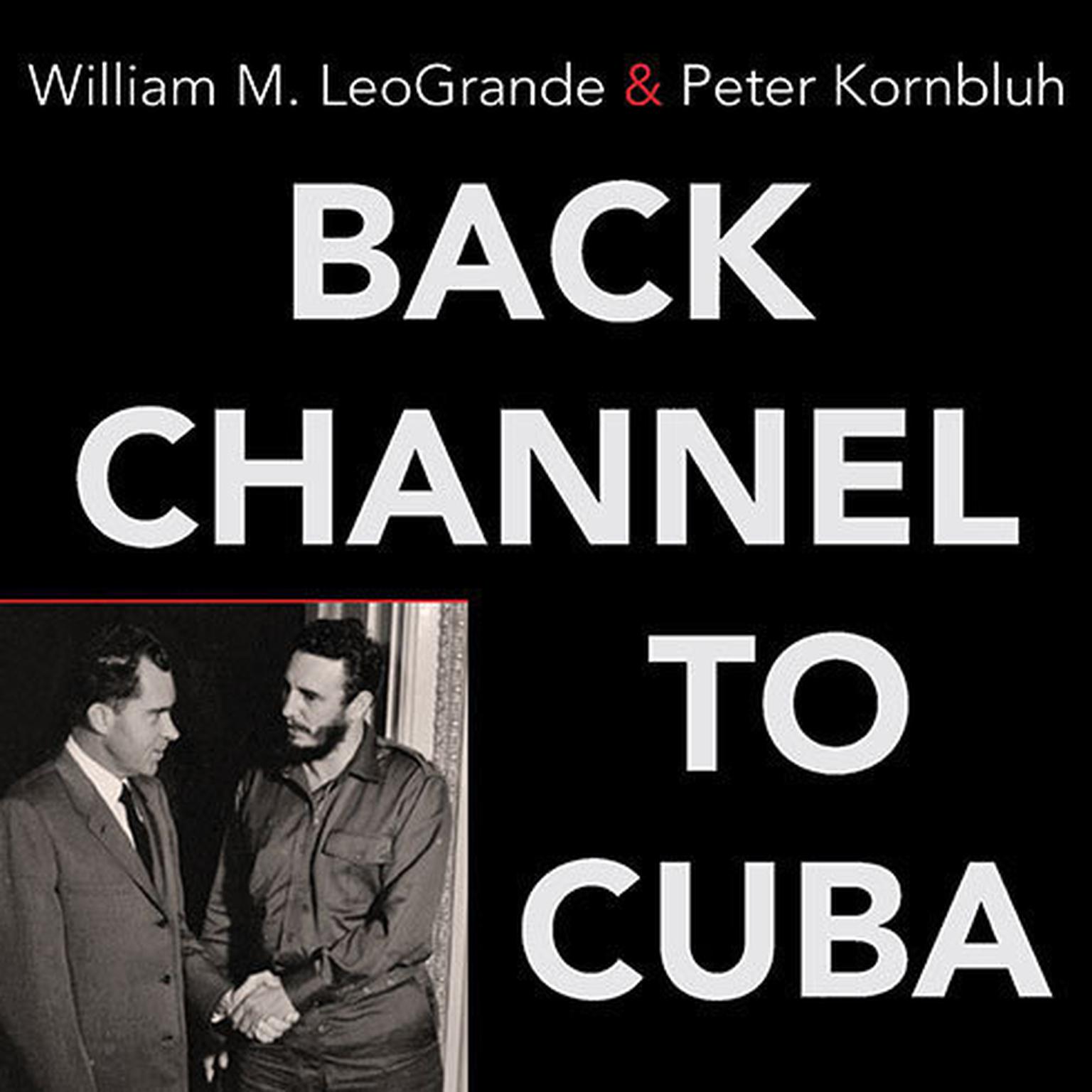 Play Audiobook Sample
Play Audiobook Sample
Back Channel to Cuba: The Hidden History of Negotiations between Washington and Havana Audiobook
 Play Audiobook Sample
Play Audiobook Sample
Quick Stats About this Audiobook
Total Audiobook Chapters:
Longest Chapter Length:
Shortest Chapter Length:
Average Chapter Length:
Audiobooks by this Author:
Publisher Description
Since 1959, conflict and aggression have dominated the story of U.S.-Cuban relations. From John F. Kennedy's offering of an olive branch to Fidel Castro after the missile crisis, to Henry Kissinger's top-secret quest for normalization, to Barack Obama's promise of a "new approach," William M. LeoGrande and Peter Kornbluh reveal a fifty-year record of dialogue and negotiations, both open and furtive, indicating a path toward better relations in the future. LeoGrande and Kornbluh have uncovered hundreds of formerly secret U.S. documents and conducted interviews with dozens of negotiators, intermediaries, and policy makers. The authors describe how, despite the political clamor surrounding any hint of better relations with Havana, serious negotiations have been conducted by every presidential administration since Eisenhower's through secret, back-channel diplomacy.
Download and start listening now!
"The book was well-said. It helped me on my historical research paper.It should be in every library and in some universities. "
— leticia allbritton (5 out of 5 stars)
Quotes
-
“LeoGrande and Kornbluh have analyzed thoroughly the history of dialogue between two countries locked in a contradictory relationship for five decades, with each side skeptical that the other truly wanted improved relations. With continual change in Washington and continuity in Cuban leadership, the authors draw important lessons from the efforts of every administration since Eisenhower to negotiate with Cuba.”
— President Jimmy Carter -
“The authors, who spent more than a decade examining classified files, provide a comprehensive account of negotiations beginning in 1959…suggesting that the past holds lessons for future negotiators.”
— New Yorker -
“LeoGrande and Kornbluh’s exhaustive and masterful diplomatic history will stand as the most authoritative account of US-Cuban diplomatic relations during the five decades of Cuban President Fidel Castro’s rule.”
— Foreign Affairs -
“A tour de force, Back Channel to Cuba never simplifies the complexity of the post-Revolution relationship between the United States and Cuba. The authors’ virtuosity and enthusiastic vigor is reminiscent of John le Carré as a political moralist while adhering to exacting scholarly standards.”
— American Conservative -
“A fascinating and thorough intellectual introduction to the [December 2014 Obama-Castro] accords…The book makes it clear that, during the long period of the Cuban–Soviet alliance, an agreement was practically impossible, though the history of attempts reads like a James Bond novel.”
— New York Review of Books -
“Told in clear prose, this richly detailed book underscores how diplomacy makes headlines, but many exchanges happen far from official negotiation tables.”
— Publishers Weekly (starred review) -
“An exceedingly well-written and well-documented account…Essential for libraries that support research into the political and diplomatic history of America foreign relations with Cuba in the latter half of the twentieth century.”
— Library Journal (starred review) -
“Narrator Robertson Dean’s deep, rich voice adds texture to the driest recitation of diplomatic initiatives. Dean has taken the time to learn the names of the people and places involved in half a century of secret talks and deals. His pace and tone are impeccable.”
— AudioFile -
Told in clear prose, this richly detailed book underscores how diplomacy makes headlines, but many exchanges happen far from official negotiation tables.
— Publishers Weekly Starred Review
Back Channel to Cuba Listener Reviews
Be the first to write a review about this audiobook!
About the Authors
William M. LeoGrande is a professor of government, a specialist in Latin American politics and US foreign policy toward Latin America, and a frequent adviser to government and private-sector agencies. He has written several books, including Our Own Backyard: The United States in Central America, 1977–1992. Previously, he served on the staffs of the Democratic Policy Committee of the US Senate and the Democratic Caucus Task Force on Central America of the US House of Representatives. LeoGrande has been a Council on Foreign Relations International Affairs Fellow and a Pew Faculty Fellow in International Affairs. His articles have appeared in various international and national journals, magazines, and newspapers.
Peter Kornbluh is a senior analyst at the National Security Archive in Washington. He is the author of several books, including The Pinochet File: A Declassified Dossier on Atrocity and Accountability.
About Robertson Dean
Robertson Dean has played leading roles on and off Broadway and at dozens of regional theaters throughout the country. He has a BA from Tufts University and an MFA from Yale. His audiobook narration has garnered ten AudioFile Earphones Awards. He now lives in Los Angeles, where he works in film and television in addition to narrating.


